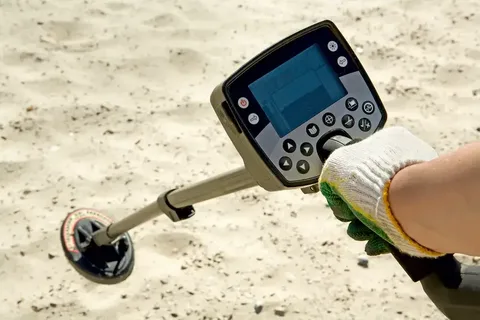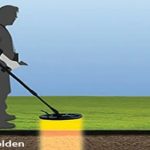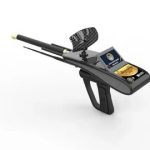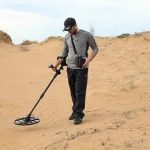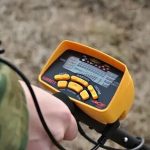Metal detectors are essential tools for treasure hunters, outdoor enthusiasts, and history buffs. Whether you’re searching for buried artifacts, lost jewelry, or hidden coins, having the right metal detector can make all the difference. But with so many options on the market, it can be difficult to find the best one for your specific needs. In this guide, we will explore the top metal detectors available, helping you discover the perfect one for your next adventure.
Discover the Best Metal Detectors for Your Next Adventure offers a comprehensive guide to finding the right metal detector for your needs. The guide includes detailed reviews of top metal detectors on the market, as well as useful tips and advice for choosing the best detector for your specific needs. Whether you’re a beginner or experienced detectorist, this guide has all the information you need to make an informed decision and get the most out of your next metal detecting adventure.
The History and Evolution of Metal Detectors
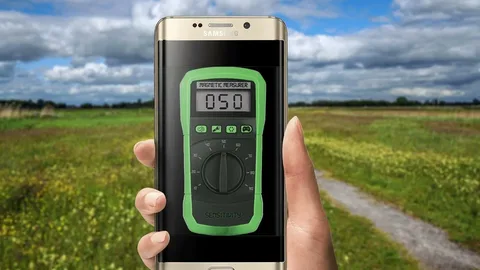
Metal detectors have a long and interesting history, dating back to the late 19th century. The first metal detector was invented by Alexander Graham Bell in 1881, as a means of locating a bullet lodged in the chest of President James Garfield after he was shot. The device, known as the induction balance, was able to detect metal objects by producing an electromagnetic field and then measuring any disruptions caused by metal.
Over the years, metal detectors have evolved and improved in both design and functionality. In the early 20th century, developments in electronics and engineering led to the creation of portable and more sensitive metal detectors, primarily used by the military for locating landmines and unexploded ordnance.
The widespread use of metal detectors for security and industrial purposes began in the mid-20th century, with applications ranging from airport security to archaeological excavations. Modern metal detectors utilize advanced technologies such as pulse induction and very low frequency (VLF) to accurately detect and discriminate between different types of metals.
Today, metal detectors are commonly used in a variety of industries, including construction, mining, and security, as well as by hobbyists and treasure hunters. The ongoing evolution of metal detector technology continues to improve their accuracy, sensitivity, and versatility, making them indispensable tools in many fields.
How to Choose the Right Metal Detector for You
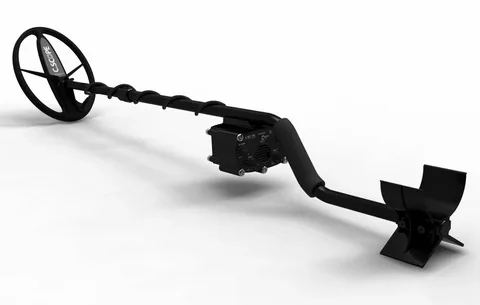
When choosing the right metal detector for you, consider the type of ground you will be searching in, the target metals you are looking for, and the level of experience you have with metal detecting. Different metal detectors are designed for different types of terrain and target metals, so be sure to choose one that meets your specific needs. Additionally, consider the weight and size of the metal detector, as it should be comfortable for you to carry and use for extended periods of time. Finally, consider any additional features or accessories that may be important to you, such as waterproof capabilities or advanced search modes. Do your research and read reviews to find the best metal detector for your particular needs.
Top 10 Metal Detecting Tips for Beginners

1. Research your chosen metal detecting location to ensure it is suitable for beginners and has ample potential for discovery.
2. Invest in a high-quality metal detector that is suitable for beginners. Consider consulting with experienced metal detector users or seeking professional advice before making a purchase.
3. Learn how to properly use your metal detector by carefully reading the instruction manual and watching tutorial videos.
4. Start your metal detecting journey by practicing in your own backyard or a local park to get a feel for how your detector works.
5. Always obtain permission before metal detecting on private property, and be mindful of any specific rules and regulations regarding metal detecting in public spaces.
6. Take your time and be patient while searching for treasures. Slow and thorough scanning can lead to more successful finds.
7. Experiment with different search coils, settings, and techniques to maximize your chances of discovering valuable items.
8. Invest in a good pair of headphones to better hear the signals emitted by your metal detector, allowing for a more precise search.
9. Keep your eyes peeled for any signs of recent digging or disturbances at potential metal detecting locations, as they may indicate the presence of buried treasures.
10. Join metal detecting clubs or online forums to connect with experienced hobbyists and gain valuable insights and advice for beginners.
Unearthing Treasure: The World of Metal Detecting
See also: metal detectors for gold
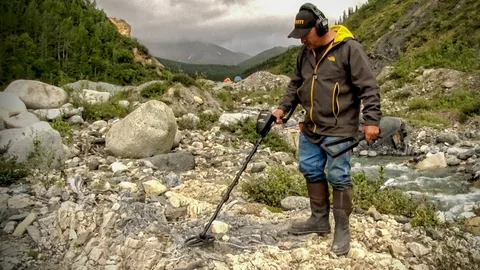
“Unearthing Treasure: The World of Metal Detecting” is a comprehensive guide to the hobby of metal detecting. The book covers various aspects of metal detecting, including the history of the hobby, different types of metal detectors, and techniques for successful treasure hunting. It also provides tips on how to responsibly and ethically engage in metal detecting, as well as real-life stories of remarkable finds. Whether you are a beginner or an experienced metal detectorist, this book offers valuable information and insights for anyone interested in this exciting pastime.
Exploring the Best Places to Use Metal Detectors
Metal detectors can be utilized in a variety of locations such as beaches, parks, old battlegrounds, and historical sites. These places offer opportunities to find valuable and interesting items such as jewelry, coins, and historical artifacts. It is important to research and obtain permission to use metal detectors in certain locations, as some areas may have restrictions or require permits. Additionally, it is necessary to abide by local laws and regulations when using metal detectors in public spaces.
The Ins and Outs of Metal Detector Repair and Maintenance
Metal detectors are widely used in various industries, including mining, security, and manufacturing. Like any equipment, metal detectors require regular maintenance and occasional repairs to ensure they continue to function effectively.
Maintenance of metal detectors typically involves cleaning and calibrating the equipment, as well as checking for any loose or damaged components. This helps to prevent malfunctions and ensure accurate detection of metal.
When it comes to repairs, common issues with metal detectors include faulty wiring, broken components, and sensor malfunctions. It is important to troubleshoot the problem and identify the root cause before carrying out any repairs.
If you are not confident in your ability to repair or maintain a metal detector, it is best to seek professional help. There are companies and technicians who specialize in metal detector repair and maintenance, and they can ensure that your equipment is functioning at its best. Regular servicing can also prolong the lifespan of your metal detector, saving you money in the long run.
Metal Detecting Laws and Regulations: What You Need to Know
Metal detecting laws and regulations vary by country, state, and local jurisdiction. In general, it is important to research and understand the specific laws and regulations related to metal detecting in the area where you plan to prospect. This may include obtaining appropriate permits or permissions to metal detect on public or private land.
Some common regulations to be aware of include restrictions on metal detecting in national parks, historical sites, and protected areas. Additionally, certain artifacts and items may be protected under cultural heritage laws and should not be removed or disturbed.
It is also important to be mindful of environmental impact and to follow good metal detecting practices, such as filling in holes and respecting the natural landscape.
Always be sure to check for any updates or changes to metal detecting laws and regulations in your area, as they can vary over time. Violating metal detecting laws and regulations can result in fines, legal consequences, and damage to the hobby’s reputation.
Finding Gold: Prospecting with Metal Detectors
Finding Gold: Prospecting with Metal Detectors is a comprehensive guide that provides in-depth information on how to use metal detectors for finding gold. This book covers the basics of prospecting, including understanding the geology of gold deposits and the techniques for using metal detectors effectively. It also provides tips and tricks for maximizing your chances of finding gold, as well as guidance on the legal and ethical considerations of gold prospecting. Whether you’re a beginner or an experienced prospector, this book offers valuable insights and practical advice for anyone looking to strike it rich. With detailed explanations and real-world examples, Finding Gold: Prospecting with Metal Detectors is a must-have resource for anyone interested in the exciting and potentially lucrative hobby of gold prospecting.
Metal Detecting for Archaeological Discoveries
Metal detecting for archaeological discoveries is the use of a handheld metal detector to locate and retrieve hidden artifacts or objects of historical or cultural significance. This technique has been used by amateur enthusiasts as well as professional archaeologists to discover and study ancient artifacts, coins, jewelry, and other items of interest. When conducted responsibly and with permission from the landowner, metal detecting can provide valuable insights into the history and development of a specific area. However, it is important to note that some countries have regulations and laws governing the use of metal detectors for archaeological purposes, and it is essential to be aware of and comply with these regulations to avoid legal issues.
The Ultimate Guide to Metal Detector Accessories and Gear
The Ultimate Guide to Metal Detector Accessories and Gear offers in-depth information about essential tools and equipment for metal detecting enthusiasts. It provides detailed insights on various accessories such as pinpointers, shovels, scoops, digging tools, headphones, and carrying bags. Additionally, the guide covers a range of gear including coils, covers, harnesses, and protective gear. Whether you’re a beginner or experienced detectorist, this guide is a comprehensive resource to enhance your metal detecting experience.

